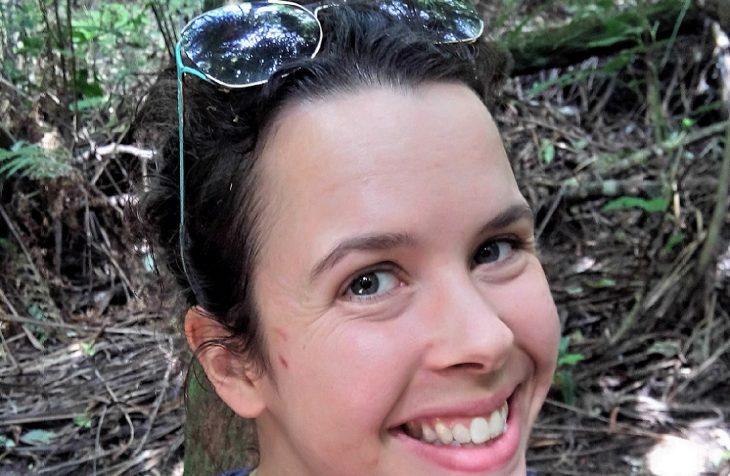Faces of ESLR: Vix Franks
When I was on summer holiday at around 6 years old, I sent a postcard to my grandparents. Instead of the normal tales of daily antics, it read “the rainbow chicken is a member of the chicken family”, accompanied with a drawing of said chicken… and that was it. It’s gone down in history with my family, and I think it was clear from then on that I was going to be a Zoologist!
During my undergraduate degree (Zoology, Aberystwyth University) I also became fascinated with animal social behaviour in particular. Here, I researched how socially foraging guppies share information about the location and quality of food patches. After that, I did an MSc at The Royal Veterinary College/Zoological Society of London in Wild Animal Biology – engaging with my other core focus of conservation and management of wild animal populations. My MSc project here was a bit of a diversion to macroecology – researching predictors of alien range sizes in introduced birds – but it was the first time I was able to focus on Class Aves as my primary study taxon, and I became known as “bird girl” to my classmates!
In my PhD (University of Cambridge), I combined my interests in social behaviour, conservation, and birds, researching the importance of early life social experiences for foraging and conservation in juvenile songbirds. I was lucky enough to spend several months at a time on fieldwork in New Zealand, on a tiny island where I worked with a threatened passerine known as the hihi. Through hours of observation, I recorded the social structure of juvenile hihi (they tend to aggregate at the low points on the island for a few months at the end of each breeding season), and I then tested how these groups affected foraging behaviour using field experiments. I was also able to explore how social structure changes when these young birds are moved to new sites during translocations that are a key part of the conservation for this species, and what the consequences of these changes are for survival.
Since completing my PhD in 2019, I have continued to focus on animal social behaviour in my research. I conducted a postdoc at Royal Holloway University of London, researching how honeybees communicate about changing foraging conditions using the tremble dance and stop signal. This was a valuable experience in a study system that was on a completely different scale to my PhD – there are more individuals in one honeybee colony than there are hihi in the world! More recently, I’ve also been investigating how spatial and genetic components contribute to early-life social structure (returning to hihi), thanks to a research grant from the Association for the Study of Animal Behaviour. Alongside my research, I have also just started a lecturing post in Animal Behaviour at the University of Chester.
If you’d like to keep in touch, you can find me on Twitter.
